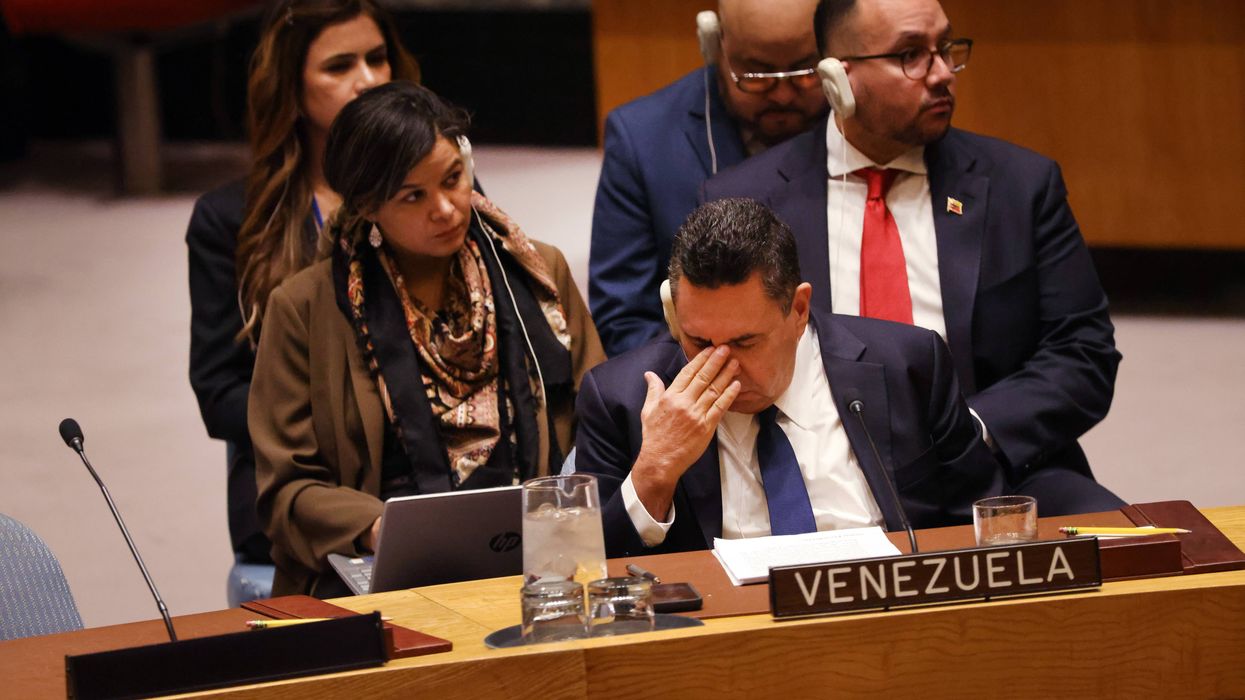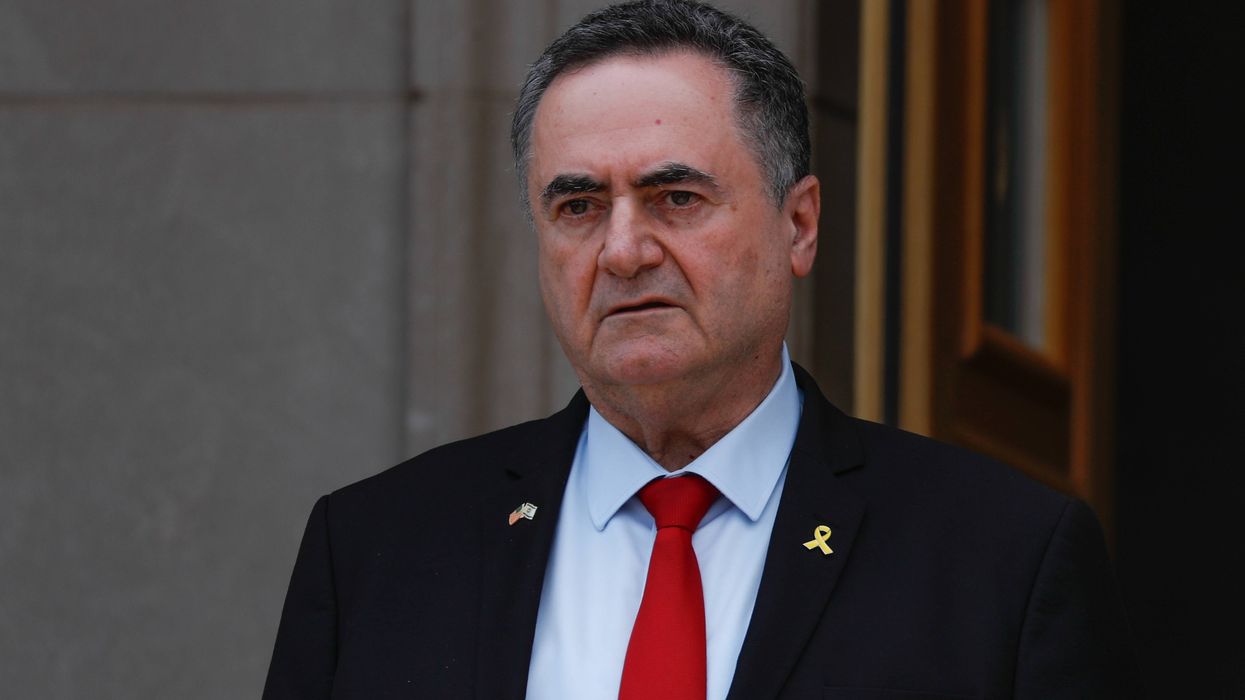May, 16 2019, 12:00am EDT
New Syrian Government Offensive Takes Horrific Toll on Health Care Facilities
Data from Physicians for Human Rights (PHR) demonstrates recent uptick in attacks; PHR calls on Syrian government to cease onslaught, appeals to international community to hold perpetrators accountable
WASHINGTON
As violence has escalated in northwest Syria since April 26, Syrian government forces and their Russian allies have reportedly carried out as many as 18 attacks on hospitals and other health care facilities - an enduring tactic which violates international humanitarian laws that protect health facilities and personnel as well as access to medical care. The systematic violations in Syria amount to war crimes, and rise to the level of crimes against humanity.
Of the 18 recent reported attacks, Physicians for Human Rights (PHR) has verified nine, all of which it has assessed to have been conducted by Syrian government forces and their allies.
PHR has researched, documented, and mapped attacks on medical infrastructure in Syria since the start of the conflict in March 2011. From March 2011 through May 2019, PHR has confirmed that there were at least 566 attacks on 348 separate facilities, as well as at least 890 medical personnel killed. Ninety-one percent of these crimes were committed by the Syrian government and its allies. As PHR's data demonstrates, the Syrian government and its allies have systematically targeted medical facilities and professionals as part of their strategy of war, criminalizing medical care and denying medical access in the process.
April 2019 saw a new spike in attacks on health care after a lull in early 2019. Starting on April 28, PHR began receiving reports from its partners of attacks on health care facilities concentrated in northern Hama and southern Idlib. By the second week of May, partners reported more and more attacks as the Syrian government and its allies expanded their air and ground campaign in the northwest. Many of those facilities had been attacked by Syrian government or Russian forces previously, some as recently as September 2018. In addition, partners reported that the coordinates of at least three of the impacted facilities had been shared with parties to the conflict through the UN's deconfliction mechanism, an indication of the possible deliberate nature of the attacks.
PHR coordinates with partners in Syria, including the Union of Medical Care and Relief Organizations, the Syrian American Medical Society, and Syria Relief and Development to corroborate data. The most recent attacks all took place in areas outside of Syrian government control in northern Hama and southern Idlib.
"This intensification of attacks by Syrian government forces and their allies delivers a hammer blow to an already severely weakened health system that has been brutally battered by years of systematic targeting," said Phelim Kine, deputy director of programs and director of research and investigations at Physicians for Human Rights.
"These attacks severely compromise the ability of Syrian medical personnel to deliver care and underscore the urgent need for meaningful international moves to stop this unlawful violence and bring those responsible to account."
Since it was established in 1986, PHR has documented and advocated to stop the unlawful detention, torture, and killing of medical professionals in dozens of countries. PHR has advocated against the interference with medical care in violation of human rights and international laws and principles that protect the impartial delivery of health care, especially in times of civil unrest or conflict. Among other violations, the organization has reported on systematic attacks on doctors in Bahrain, the jailing of AIDS doctors in Iran, attacks on and persecution of medical workers in Turkey, and the targeting and destruction of medical facilities and killing of medical personnel in Sudan, Syria, and Yemen.
PHR has developed and maintains the following resources documenting the impact of the Syrian conflict on the country's health care infrastructure:
- Interactive Map: Illegal Attacks on Health Care in Syria
- Findings as of May 2019
- Facts and data: Medical Personnel Targeted in Syria
- Factsheet: The Syrian Conflict: Eight Years of Devastation and Destruction of the Health System
- Case Studies: Specific incidents of attacks on health care facilities and personnel in Syria
- Recent PHR blog posts (blog archive concerning Syria):
- Blog: International Justice Closes in on Syria's State-backed Killers
- Blog: Syria's War on Health Workers and Facilities Puts Children at Risk
- Blog: A Brewing Humanitarian Catastrophe as the Battle for Idlib Looms
- Blog: Combating Impunity: How We Risk Normalizing Chemical Weapons Attacks and Other War Crimes in Syria
PHR was founded in 1986 on the idea that health professionals, with their specialized skills, ethical duties, and credible voices, are uniquely positioned to investigate the health consequences of human rights violations and work to stop them. PHR mobilizes health professionals to advance health, dignity, and justice and promotes the right to health for all.
LATEST NEWS
Trump Blockade of Venezuela, Murders on High Seas Violate International Law: UN Experts
"The illegal use of force, and threats to use further force at sea and on land, gravely endanger the human right to life and other rights in Venezuela and the region."
Dec 24, 2025
Experts at the United Nations on Wednesday issued a scathing rebuke to US President Donald Trump's aggression toward Venezuela, saying attempts to impose an oil blockade based on US-imposed sanctions and a series of bombings of alleged drug-trafficking vessels at sea are clear violations of international law.
“There is no right to enforce unilateral sanctions through an armed blockade,” said the UN experts.
According to their statement:
A blockade is a prohibited use of military force against another country under article 2(4) of the UN Charter. “It is such a serious use of force that it is also expressly recognized as illegal armed aggression under the General Assembly’s 1974 Definition of Aggression,” the experts said.
“As such, it is an armed attack under article 51 of the Charter – in principle giving the victim State a right of self-defence,” they said.
“The illegal use of force, and threats to use further force at sea and on land, gravely endanger the human right to life and other rights in Venezuela and the region,” the experts said.
Aggression is a crime attracting universal jurisdiction under international law, which gives all countries the power to prosecute it, although the most senior government leaders retain immunity from foreign prosecution while still in office.
The experts behind the joint statement were: Ben Saul, Special Rapporteur on the promotion and protection of human rights and fundamental freedoms while countering terrorism; George Katrougalos, Independent Expert on the promotion of a democratic and equitable international order; Surya Deva, Special Rapporteur on the right to development; and Gina Romero, Special Rapporteur on the rights to freedom of peaceful assembly and of association.
Their statement notes that the US sanctions imposed on Venezuela may be "unlawful" because they are "disproportionate and punitive" under international statute. It is alleged that violations of these sanctions that the Trump administration has used to justify the blockade.
"The threat is not Venezuela. The threat is the US government." —Venezuela UN Ambassador Samuel Moncada
The aggression of the US government toward Venezuela was also rebuked at an emergency meeting of the UN Security Council on Tuesday, with China, Russia, Cuba, Colombia, and others backing Venezuela's call for an end to the series of criminal boat bombings against alleged drug traffickers in the Caribbean and eastern Pacific and the unlawful seizure of oil tankers as a way to coerce the government of President Nicolas Maduro.
Venezuela's UN Ambassador Samuel Moncada equated Trump's Dec. 16 order that the US was establishing a "total and complete blockade of all sanctioned oil tankers" coming into or out of Venezuela an admission of "a crime of aggression" by the US president, who Moncada said wants to “turn back the clock of history 200 years to establish a colony" in the Latin American country.
Moncada characterized the recent US seizure of two oil tankers in international waters as "worse than piracy" and "robbery carried out by military force," warning that such brazen acts set "an extremely serious precedent for the security and navigation of international trade" in the region and worldwide.
"We are in the presence of a power that acts outside of international law," he said of the US delegation, "demanding that Venezuelans vacate our country and hand it over. We are talking about pillaging, looting, and recolonization of Venezuela."
During his comments to the council, Mike Waltz, the US Representative to the UN, defended Trump's policies by calling the threat of "transnational terrorist and criminal groups" the "single most serious threat" in the hemisphere. Waltz repeatedly claimed, without providing evidence, that Maduro's government is part of a criminal gang called "Cartel de Los Soles," which Moncada said was "ridiculous" as the group is "non-existent," an invention of the Trump administration.
Human rights groups, UN experts, and scholars of international have all stated that Trump's extrajudicial targeting of alleged drug boats—which have now left over 100 people killed—are nothing short of "murder" on the high seas.
In their Wednesday statement, the four UN experts said the killings at sea ordered by Trump "amount to violations of the right to life," citing the International Covenant on Civil and Political Rights, which the US government ratified in 1992.
The experts called on all UN member states "to urgently take all feasible measures to stop the blockade and illegal killings" by the US government, "including through diplomatic protest, General Assembly resolutions, and peaceful counter-measures—and bring perpetrators justice."
“Collective action by States is essential to uphold international law,” they said. “Respect for the rule of law, sovereignty, non-use of force, non-intervention, and the peaceful settlement of disputes are essential to preserving peace and stability worldwide.”
In his remarks, Moncada said Venezuela would defend itself against aggression but did not consider itself at war with the United States.
"Let it be clear once and for all that there is no war in the Caribbean, there is no international armed conflict, nor is there a non-international one, which is why it is absurd for the US government to seek to justify its actions by applying the rules of war," Moncada told the council.
"The threat is not Venezuela," he said. "The threat is the US government."
Keep ReadingShow Less
YouTube, TikTok Deleted ‘60 Minutes’ CECOT Clips Amid Paramount Takedown Push
The segment on the notorious torture prison—where the Trump administration has been unlawfully deporting Venezuelans—went viral on social media after being inadvertently aired in Canada.
Dec 23, 2025
Websites including YouTube and TikTok this week removed posts of a CBS News "60 Minutes" segment on a notorious prison in El Salvador, where Trump the administration has been illegally deporting Venezuelan immigrants, after being notified that publishing the clip violated parent company's copyright.
The segment on the Terrorism Confinement Center (CECOT)—which was intended to air on Sunday's episode of "60 Minutes"—was pulled by right-wing CBS News editor-in-chief Bari Weiss, who claimed that the story "was not ready" for broadcast, despite thorough editing and clearance by key company officials.
“Our story was screened five times and cleared by both CBS attorneys and Standards and Practices," said "60 Minutes" correspondent Sharyn Alfonsi, who reported the segment. “It is factually correct. In my view, pulling it now, after every rigorous internal check has been met, is not an editorial decision, it is a political one.”
The segment—which can still be viewed on sites including X—was shared by social media users after a Canadian network received and broadcast an original version of the "60 Minutes" episode containing the CECOT piece prior to CBS pulling the story. The social media posts containing the segment were reportedly removed after CBS parent company Paramount Skydance filed copyright claims.
A CBS News representative said that “Paramount’s content protection team is in the process of routine take down orders for the unaired and unauthorized segment.”
Weiss—who also founded and still edits the Paramount Skydance-owned Free Press—has faced criticism for other moves, including presiding over the removal of parts of a previous "60 Minutes" interview with President Donald Trump regarding potential corruption stemming from his family’s massive cryptocurrency profits.
On Tuesday, Axios reported that Weiss is planning a broad overhaul of standards and procedures at the network, where she was hired by Paramount Skydance CEO and Trump supporter David Ellison in October, despite a lack of broadcasting experience.
Keep ReadingShow Less
Israeli Defense Minister Tries to Walk Back Vow to 'Never Leave Gaza,' Build Settlements
The remarks drew critical responses, including from other Israelis and the White House.
Dec 23, 2025
Israeli Defense Minister Israel Katz "said the silent part out loud" on Tuesday, then promptly tried to walk back his comments that his country would not only never leave the Gaza Strip, but also reestablish settlements in the decimated exclave.
Israel evacuated Jewish settlements in Gaza two decades ago, but some officials have pushed for ethnically cleansing the strip of Palestinians and recolonizing it, particularly since the Hamas-led October 7, 2023 attack and the devastating Israeli assault that followed.
The Times of Israel on Tuesday translated Katz's remarks—made during an event about expanding Beit El, a Jewish settlement in the illegally occupied West Bank—from Hebrew to English:
"With God's help, when the time comes, also in northern Gaza, we will establish Nahal pioneer groups in place of the settlements that were evacuated," he said. "We'll do it in the right way, at the appropriate time."
Katz was referring to the Nahal military unit that, in part, lets youths combine pioneering activities with military service. In the past, many of the outposts established by the unit went on to evolve into full-fledged settlements.
"We are deep inside Gaza, and we will never leave Gaza—there will be no such thing," Katz said. "We are here to defend and to prevent what happened from happening again."
The so-called peace plan for Gaza that US President Donald Trump and Israeli Prime Minister Benjamin Netanyahu announced at the White House in late September notably states that "Israel will not occupy or annex Gaza," and "the Israel Defense Forces (IDF) will withdraw based on standards, milestones, and timeframes linked to demilitarization."
Gadi Eisenkot, a former IDF chief of staff who launched a new political party a few months ago, responded to Katz on social media, writing in Hebrew, "While the government votes with one hand in favor of the Trump plan, it sells myths with the other hand about isolated settlement nuclei in the strip."
"Instead of strengthening security and bringing about an enlistment law that will bolster the IDF, the government, driven by narrow political considerations, continues to scatter irresponsible and empty declarations that only harm Israel's standing in the world," he added.
The White House was also critical of Katz's comments, with an unnamed official saying that "the more Israel provokes, the less the Arab countries want to work with them."
"The United States remains fully committed to President Trump's 20-point peace plan, which was agreed to by all parties and endorsed by the international community," the official continued. "The plan envisions a phased approach to security, governance, and reconstruction in Gaza. We expect all parties to adhere to the commitments they made under the 20-point plan."
Later Tuesday, Katz's office said that "the minister of defense's remarks regarding the integration of Nahal units in the northern Gaza Strip were made solely in a security context. The government has no intention of establishing settlements in the Gaza Strip. The minister of defense emphasized the central principle of border defense in every arena: The IDF is the first and last line of defense for Israel's citizens, and the state of Israel relies for its protection solely on it and on the security forces."
Katz became defense minister in November 2024, just weeks before the International Criminal Court issued arrest warrants for his fired predecessor, Yoav Gallat, and Netanyahu over Israel's assault on and blockade of Gaza. When Katz took on the new role after serving as foreign minister, Palestine defenders accused the prime minister of swapping one "genocidal lunatic" for another.
Israel faces an ongoing genocide case at the International Court of Justice for its mass slaughter of Palestinians in Gaza. As of Tuesday, local officials put the death toll since October 2023 at 70,942, with another 171,195 Palestinians wounded, though global experts warn the true tallies are likely far higher.
At least 406 of those confirmed deaths have occurred since Israel and Hamas agreed to a ceasefire that took effect October 10. In a Monday letter demanding action from the White House, dozens of Democratic US lawmakers noted Israel's "continued bombardment against civilians, destruction of property, and insufficient delivery of humanitarian aid."
Keep ReadingShow Less
Most Popular


